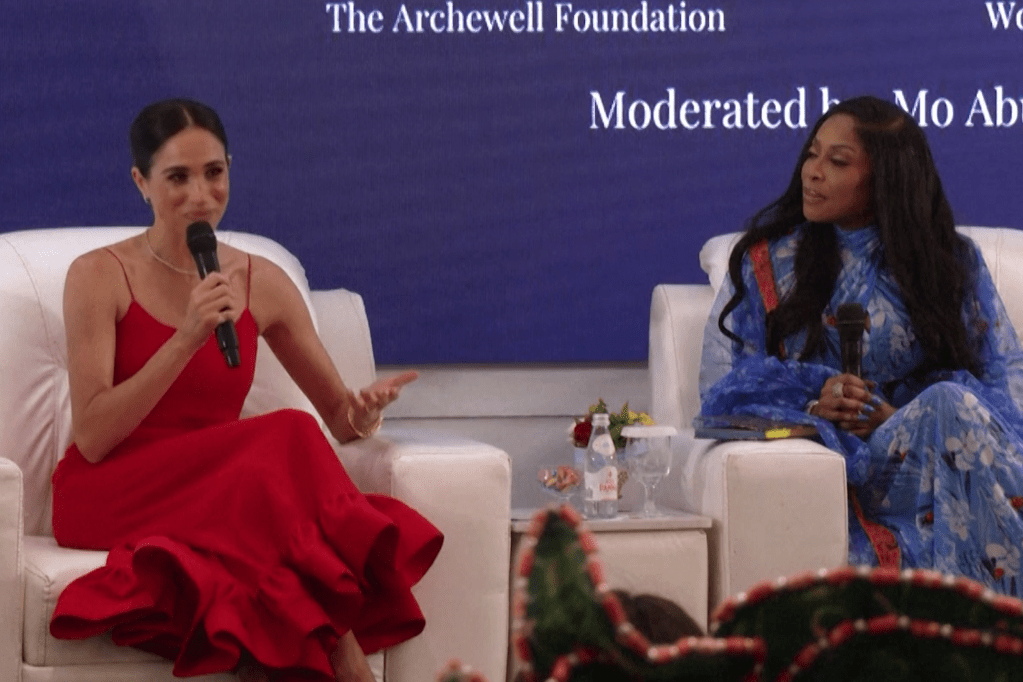During the event, Markle spoke about her experiences growing up as a biracial woman in America. She mentioned her mother, who is Black, and her father, who is white, and how they influenced her views on identity and race. Markle also talked about her maternal ancestry, mentioning that her grandmother was a descendent of slaves who served in the British Royal household.
Markle’s comments about Nigeria came as a surprise to some, as she is not known to have any direct Nigerian ancestry. However, her statement can be seen as a way of acknowledging the diversity and richness of her background. By referring to Nigeria as “my country,” Markle is highlighting the importance of embracing all aspects of her heritage and identity, regardless of whether or not she has a direct connection to a particular country.
The event itself was focused on women in leadership roles, and Markle and Dr. Okonjo-Iweala discussed various issues related to gender equality and empowerment. Markle emphasized the need for more women to be in positions of leadership and decision-making, highlighting the importance of diverse perspectives and voices in shaping policies and systems.
Markle’s involvement in events like this Women in Leadership gathering is in line with her ongoing work as a philanthropist and advocate for gender equality. Since stepping back from her role as a senior member of the British Royal Family, Markle has been involved in various initiatives that support women and girls around the world.
Overall, Markle’s comments about Nigeria and her discussion of her background serve as a reminder of the importance of embracing one’s heritage and identity. Her acknowledgment of Nigeria as “my country” reflects her commitment to recognizing and celebrating all aspects of who she is, regardless of societal expectations or labels. As she continues her work as a philanthropist and activist, Markle’s commitment to diversity and inclusion remains a central theme in her advocacy efforts.


